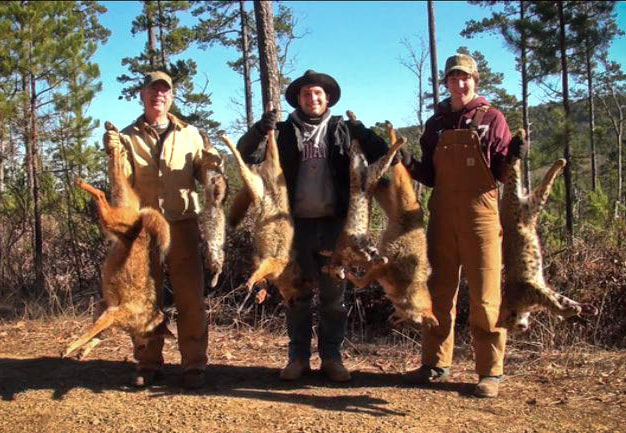|
I have the opportunity to talk to trappers pretty much every working day of the year and have done so for 40 years. This has given me quite a perspective on methods, approaches, and the perspective of others.
I have talked with some of the best trappers in the country and certainly lots of beginners. This blog is about jumping to conclusions. I will start out by saying this may seem a little negative because this is based on the mistakes of others. However, I will defend myself in saying that we all learn from our mistakes and the mistakes of others. Certainly the success and methods used by successful trappers are pretty well documented. So this is working off of the premise of learning from our mistakes. In a scientific study, conclusions are based on a number of determining factors, variables and in most cases keeping everything exactly the same to see if the results are the same each time. Many times I have seen trappers have one or two occurrences and assume that what they are doing isn't working. At times this is at the beginner level. However, I have seen this occur with veteran trappers that are trying new methods (possibly out of their comfort zone). Recently, a new trapper was in the shop telling me of his lack of success. He was trying to trap coyotes. He told me that he was using a dirt hole set to no avail. He proceeded to tell me that he had found a video on Youtube that showed a trapper using a double dirt hole set. Of course he tried the double dirt hole, caught a coyote and his conclusion was that the double dirt hole set was far superior as compared to a standard dirt hole. This example is a little extreme and highlights the pitfalls of a new trapper. It is also a good example of jumping to conclusions. I have heard numerous similar scenarios over the years. For a trapper to come to a conclusion based on just a few occurrences would be pre-mature to say the least. As all of you know there are a number of factors and variables when trapping. Everything from weather, temperature, time of year, location, target species, etc. . To try something and then give up on it too early could end up being a huge mistake. Constant evaluation is very important. What you are doing in November may not work in January and vice versa. The evolution a trapper goes through in his career may seem subtle. However if you back tracked to the beginning or even middle years, the present day methods are probably reminiscent of the past with significant changes and adjustments. I might add that a veteran trapper has years of experience on his side. Many times what he is doing differently may not even be earth shattering to the observer. However, I can assure you they are there. It is the "intangible lifelong experiences" that are sometimes hard to completely process. In most cases it takes a base line of knowledge and experience to fully appreciate what a veteran trapper's expertise. I can assure you that most successful trappers have not jumped to conclusions prematurely! So, keep an open mind and don't give up on a method, new method, or idea too soon! Until next time Charlie Masheck
0 Comments
|
AuthorCharlie Masheck has been a trapper since 1972. He started Hoosier Trapper Supply in 1976 and was a fur buyer from 1976 - 1991. Charlie is also the formulator of the Leatherwood Line of trapping scents, Top Dog Predator Bait and Lip Licker Deer Lure. His 46 years of trapping experience and association with trappers and the fur industry have given him a history and perspective of the trapping trade few have. Archives
August 2018
|
|
|
STORE HOURS
Weekdays 10:00am - 5:30pm Saturday 10:00am - 1:00pm Closed Sunday & Major Holidays |
Email: [email protected] Phone: (317) 881-3075
We are members of, and proudly support:
*As Well as Other State Organizations
|
Website Design by: Jake Masheck
|
Copyright © 2024 by Hoosier Trapper Supply Inc.
|



